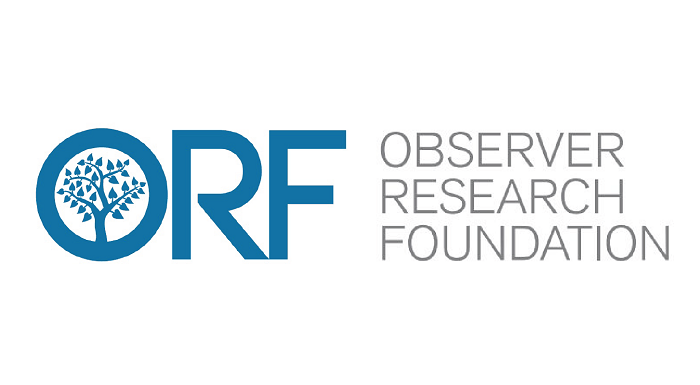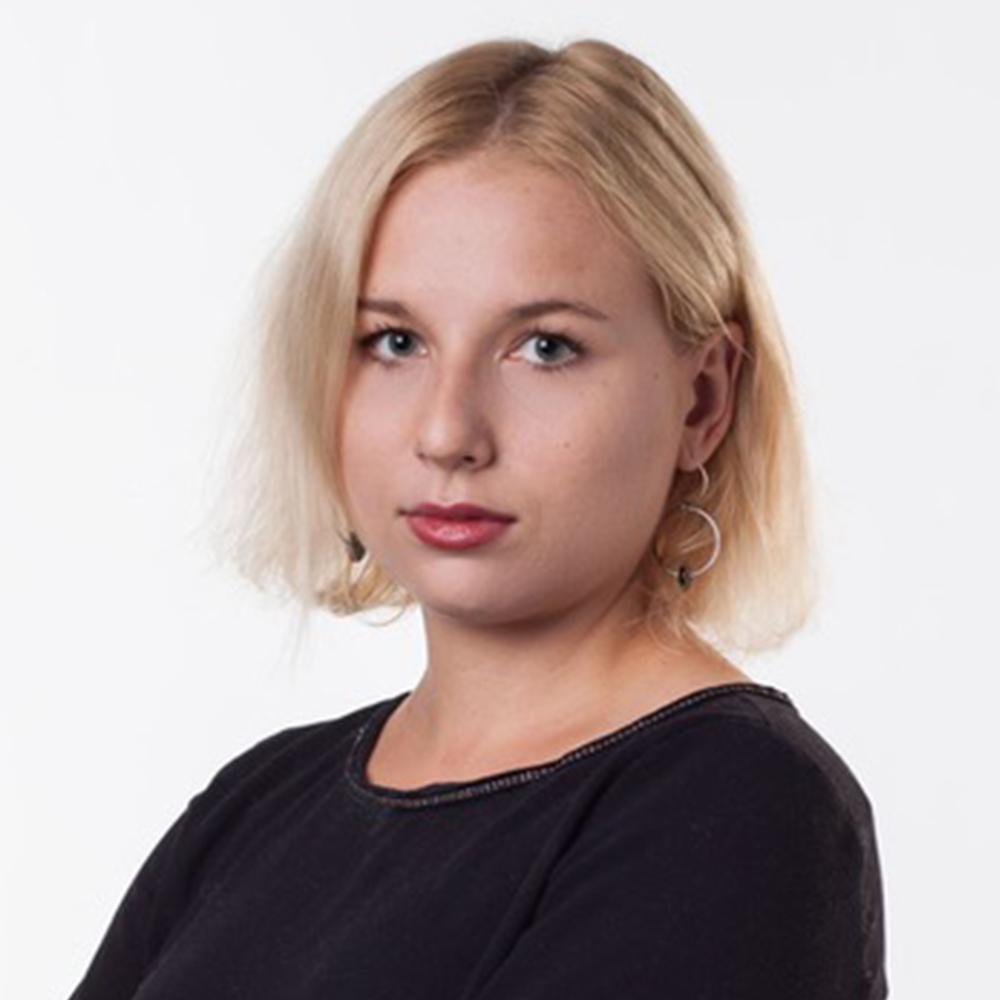
We would like to inform, that Observer Research Foundation has published article of Patrycja Pendrakowska – the Boym Institute Analyst and President of the Board.
Patrycja Pendrakowska discussed approach of the Polish government towards the coronavirus pandemic. She has also delivered commentary on recent events in the country’s political scene and diplomatic spat between US and China ambassadors.
You can read the article here: [LINK]

Patrycja Pendrakowska Founder and the vice president of the Boym Institute, and analyst of China's foreign policy and economy. On behalf of the Institute, she works on the EU-ASEAN relations within the EANGAGE project coordinated by KAS Singapore and on the Betzavta method with the Adam Institute for Peace and Democracy in Jerusalem. She is one of the founding members of the board at WICCI's India-EU Business council based in Mumbai and coordinated the Transcultural Research Group on the Belt and Road Initiative organised by the Leadership Excellence Institute Zeppelin. Ms Pendrakowska is a PhD candidate at the Humboldt University in Berlin, where she researches political philosophy in China. She graduated from the University of Warsaw with a BA in Sinology, Sociology and Philosophy, and holds two master's degrees in Financial Law, as well as Ethnography and Cultural Anthropology from the University of Warsaw.
czytaj więcej
In the first part of this analysis of Ulaanbaatar’s winning 2040 General Development Plan Conception (GDPC) I look into the historical preconditions for the city’s planned development as well as present the legislative climate in which works on Ulaanbaatar’s future development strategies have recently found themselves.
Paweł SzczapPatrycja Pendrakowska as a founding member of the WICCI’s India-EU Business Council
By sharing knowledge, business opportunities, and best practices the Council generates awareness of women's contributions in developing the India-EU relations.
Lessons for China and Taiwan from the war in Ukraine
The situation of Taiwan and Ukraine is often compared. The logic is simple: a democracy is threatened by a repressive, authoritarian regime making territorial claims and denying it the right to exist.
Paweł BehrendtEnvironmental problems transcend not only national borders but also historical periods. And yet debates on the necessary measures and timelines are often constrained by considerations of election cycles (or dynastic successions) in any given country.
Dawid JuraszekKyrgyzstan on the Path to Political Stabilisation
On 10 January, early presidential elections were held in Kyrgyzstan, following the resignation of the incumbent, President Zheenbekov. The atmosphere in which the vote was conducted remained tense. This had been the case since the results of the October elections were announced, in which the opposition grouping failed to win a single parliamentary seat.
Jerzy OlędzkiCentral Asia. The winding road to regional integration
The aim of the paper is to present the current stage of integration among the Central Asian republics and to analyze directions and dynamics of this process in the nearest future. This study also attempts to identify factors which can either slow down or strengthen the process of integration as well as its causes and consequences.
Jerzy OlędzkiTranscultural Winter School 2021 (8th of November — 12th of November)
This year’s research project TSRG 2021 as a collaborative initiative between Leadership Excellence Institute Zeppelin and the Boym Institute continued with a Transcultural Winter School in Zeppelin University, in Friedrichshafen.
China – USA in the South China Sea
The trade war is just one of the problems of confrontation between the United States and the People's Republic of China. Many aspects of this competition coincide in the South China Sea.
Paweł BehrendtWorkshop – Liberalism vs authoritarianism: political ideas in Singapore and China
We cordially invite you to a workshop session “Liberalism vs authoritarianism: political ideas in Singapore and China”. The workshop is organized by Patrycja Pendrakowska and Maria Kądzielska at the Department of Philosophy, University of Warsaw on ZOOM.
A Story of Victory? The 30th Anniversary of Kazakh Statehood and Challenges for the Future.
On 25 May 2021, the Boym Institute, in cooperation with the Embassy of the Republic of Kazakhstan, organised an international debate with former Polish President Aleksander Kwaśniewski (1995-2005).
Patrycja Pendrakowska as a participant of Women Economic Forum (WEF) in India
The interactive discussion covers recent projects and collaborations which have contributed to a greener economy in India
80th anniversary of Indonesian Proclamation of Independence and 70th anniversary of Poland-Indonesia diplomatic relations. April 23rd, at 10:00 am, aula im. prof. Waldemara Michowicza, ul. Lindleya 5A, Łódź.
Ailuna Shamurzaeva – Research Fellow at the Boym Institute
Her research focuses on political economy, migration studies, and international trade. Ailuna, we are more than happy to welcome you to the team!
Interview: Why Does Poland Need ‘17+1’?
Interview with Michał Wójcik - Director of the Department of International Cooperation of the Ministry of Marine Economy and Inland Navigation (DWM MGMiŻŚ). In the Ministry, he is leading the Coordinating Secretariat for Maritime Issues , monitoring the cooperation of Central and Eastern European States with China.
Krzysztof Zalewski“Green growth” may well be more of the same
Witnessing the recent flurry of political activity amid the accelerating environmental emergency, from the Green New Deal to the UN climate summits to European political initiatives, one could be forgiven for thinking that things are finally moving forward.
Dawid JuraszekForeign Direct Investment in Vietnam
Thanks to continuous economic development, Vietnam attracts a record number of Foreign Direct Investment (FDI). The catalyst for such a strong growth of FDI in Vietnam is not only the ongoing trade war between the US and China, but also new international agreements.
Jakub KrólczykDr Krzysztof Zalewski participates in the Kigali Global Dialogue in Rwanda
A short note and photo gallery from the chairman of the Board of the Boym Institute, who stays in Rwanda at the "Kigali Global Dialogue" conference.
A letter from the Adam Institute in Jerusalem
This letter is part of our series on the Voices from Asia. We share our platform with Dr. Uki Maroshek-Klarman who serves as the Executive Director at the Adam Institute for Democracy and Peace in Jerusalem, Israel.
Uki Maroshek-KlarmanWe’re Stronger Together – an Interview with Minister Marcin Przydacz
"Cooperation and investments – we are absolutely up for it. However, we prefer to keep a certain degree of caution when it comes to entrusting the transfer of technology and critical infrastructure to external investors. The security of Poland and the EU should be considered more important than even the greatest economic gains..."
Roman Catholic cemetery in Harbin (1903-1958)
First burials of Catholics, mostly Poles but also other Non-Orthodox believers took place in future Harbin in the so called small „old” or later Pokrovskoe Orthodox cemetery in the future European New Town quarter and small graveyards at the military and civilian hospitals of Chinese Eastern Railway at the turn of XIX and XX century.
Jerzy CzajewskiPaweł Behrendt for 9DASHLINE: The South China Sea – from colonialism to the Cold War
We would like to inform, that 9DASHLINE has published article of Paweł Behrendt - the Boym Institute Analyst, in which he wrote about history of the South China Sea dispute over the 20th century.
Paweł BehrendtOpportunities and challenges of India’s G20 Presidency
Ada Dyndo conducts an interview with Shairee Malhotra on India’s role in G20. Shairee Malhotra serves as a Coordinator of the T20 India Taskforce on Reformed Multilateralism for India’s G20 presidency.
Ada DyndoWhy is stronger foreign investment protection needed in relations with China?
One of the key elements of the protection of foreign investment (and thus the foreign investor) is the mechanism for resolving disputes between the state and the foreign investor. The mechanism itself may take different forms...
Adrian ZwolińskiUzbekistan, under the leadership of President Shavkat Mirziyoyev, has embarked on a path of reform. Almost daily, the media there report on new initiatives and projects. It is no coincidence that in December 2019 The Economist awarded Uzbekistan the country of the year title.
Magdalena Sobańska-Cwalina

